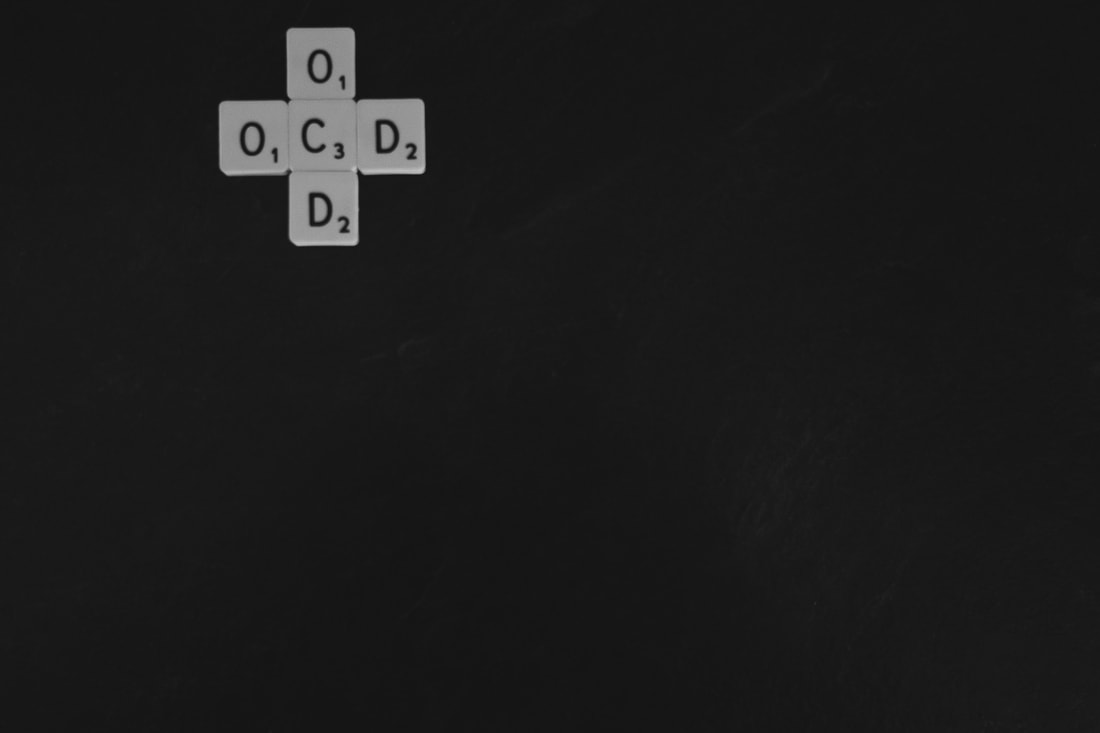|
Third wave therapies often focus on a behavioural approach to treating mental health conditions. These include OCD, depression, anxiety and more. Common therapies include Acceptance and Commitment Therapy (ACT), Mindfulness-Based Cognitive Therapy (MBCT), and Dialectical Behavior Therapy (DBT). A common focus, although worded differently, is on mindfulness, acceptance and value-driven behaviour changes. They have in common with first wave therapies that they focus on the benefits of changing behaviours. Third wave therapies represent an effective treatment option that can be integrated into online therapy platforms. Today we will discuss how third wave therapies work, in the context of treating OCD online and especially their application to other mental health conditions. The Role of Third Wave Therapies in OCD Therapy Done OnlineThe Benefits of Online OCD TreatmentOnline Therapy has gained popularity due to its convenience an independence of location. Patients can receive treatment from an area they are most comfortable at. This makes it easier to maintain consistency when doing regular sessions. Online treatment for Anxiety or OCD often incorporates third wave therapies, which don’t only focus on symptoms but understand that the most important to live a meaningful life. How ACT Enhances Online OCD TherapyAcceptance and Commitment Therapy (ACT) is particularly effective in treating OCD. It often helps patients accept their intrusive thoughts without judgment and whilst exploring how they can commit to actions that align with their values. Commonly in an online setting, an OCD specialist can guide patients through ACT exercises whilst helping them address their obsessions and compulsions. Integrating MBCT in Online OCD TreatmentMindfulness-Based Cognitive Therapy (MBCT) combines Beckian cognitive therapy with modern mindfulness related methods. For those seeking the best online therapy for OCD, MBCT offers techniques to stay present and reduce engagement with intrusive thoughts. An online psychotherapist for OCD can teach patients mindfulness practices that often acconpany Exposure and Response Prevention (ERP). This leads to improved outcomes as practising ERP is a necessity when treating OCD. Third Wave Therapies for Other Mental Health ConditionsTreating Depression with MBCTDepression is a serious mental health problem. Research has shown that it benefits significantly from third wave therapies. MBCT has been shown to effectively prevent relapse in individuals with recurrent depression. This is done through developing a mindful awareness of their thoughts and feelings. Numerous online therapy platforms make it possible to deliver MBCT effectively. This enables clients to practice mindfulness in their daily lives. Using DBT for Borderline Personality Disorder (BPD)Dialectical Behavior Therapy (DBT) is focused on treating Borderline Personality Disorder (BPD). DBT focuses on building skills that help manage stressful situations, emotion regulation, interpersonal effectiveness and mindfulness. Online therapy can provide the environment to deliver a structured format for delivering DBT skills training. This can make it accessible to individuals who most benefit from attending sessions online regularly. Anxiety Management with ACTACT has proven to effectively treat many types of anxiety disorders. It focuses on helping clients to accept their anxiety symptoms whilst committing to actions that reflect their values. It does not emphasise trying to eliminate anxiety altogether. This approach can aid in reducing the impact of anxiety and it’s impact on daily functioning. Online therapy provides the possibility of flexible scheduling and the consistent practice of ACT principles. This is very important for managing anxiety effectively. Finding the Right Online TherapistChoosing an OCD Specialist OnlineIf you are considering searching for an OCD specialist online, it’s important to find someone trained in third wave therapies and ERP. This combination can help ensure a comprehensive approach to treatment. Commonly both the behavioural and cognitive aspects of OCD can be effectively addressed. The Best Online Therapy for OCD and BeyondThe best type of online therapy for OCD and many other mental health conditions can often include a combination of evidence-based treatments. Third wave therapies offer a flexible approach that is independent to commonly understood treatment patterns for various conditions. Patients should look for online therapy platforms that provide access to trained professionals in ACT, MBCT, and DBT, ensuring they receive the most effective care. Working with an Online Psychotherapist for OCDAn online psychotherapist for OCD who is trained in modern forms of CBT, can offer a range of therapeutic techniques. These can range from traditional ERP to mindfulness practices and accompanying acceptance strategies. The increased popularity of online sessions makes frequent interactions and ongoing support more likely. This is critical for long-term success. Even when doing therapy online or over the telephone, patients can practice therapeutic exercises in real-time with their therapist whilst receiving immediate feedback and adjustments. Conclusion: The Future of Third Wave Therapies in Online TreatmentThird wave therapies represent an advancement in the treatment of mental health conditions that in some ways goes back to the success of first wave therapies. The common focus on mindfulness, acceptance and value-driven actions provides an effective approach that can be pursued through online platforms. No matter if a therapist is dealing with OCD, depression, anxiety or BPD, third wave therapies offer a menu of effective treatment
As the demand for mental health services grows whilst the stigma continues to decline, the integration of these therapies into online treatment will likely continue to expand. Patients seeking help can benefit seeking a highly skilled OCD specialist online. This will allow them to engage in the best online therapy for OCD and other mental health problems. With an online psychotherapist you can learn to manage your issues whilst improving your quality of life. Click here to book a session for in-person or therapy over the telephone or online.
0 Comments
Mindfulness has surged in popularity throughout the western world, not only as a personal wellness practice but has also found it’s way as a critical component within many psychological therapies. Current research further underscores its efficacy in managing stress, OCD, anxiety and depression. It’s principles based straightforward approach makes it compatible with many styles of therapy. Particularly, online delivery of therapy for OCD and more using third wave Cognitive Behavioural Therapies (CBT) has proven effective.. These can range from Mindfulness-Based Cognitive Therapy (MBCT) and Acceptance and Commitment Therapy (ACT) and have shown significant promise. Concurrent to the current demand and subsequent increase in digital health solutions, these types of therapies are accessible through numerous online and telephone platforms. Understanding MindfulnessMindfulness is the practice of staying present and connected with the here and now. It trains and promotes awareness of internal sensations such as thoughts and feelings. Although it is rooted in ancient meditation practices, mindfulness can be adapted into modern therapeutic settings in order to help individuals manage their mental health more effectively. Latest Research on MindfulnessRecent research has provided further evidence that supports the benefits of mindfulness:
Third Wave CBT Therapies and MindfulnessThird wave CBT therapies represent an evolution in cognitive-behavioural approaches. These therapies integrate mindfulness to address not just the symptoms of mental health issues but often aim at behavioural changes in one’s life that align with personal values. Mindfulness-Based Cognitive Therapy (MBCT)MBCT combines traditional cognitive behavioural techniques with mindfulness strategies. It aims to prevent the recurrence of depression by teaching individuals to recognize and not get as hooked from the negative thought patterns that can often relate to a depressive episode.
Acceptance and Commitment Therapy (ACT)ACT encourages individuals to accept their thoughts and feelings whilst promoting the idea of not paying them unnecessary attention or battling them. It aims for psychological flexibility through the practice of mindfulness and behavioural change strategies.
Online Therapy with Mindfulness-Based TherapiesDigital health platforms have revolutionized the delivery of mental health services. Online therapy and telephone therapy offer convenient and more affordable options for mental health support. Online TherapyOnline therapy platforms, such as Seekapsych and Talkspace, provide access to licensed therapists through video calls, messaging and chat sessions. Platforms often include mindfulness based interventions in their treatment protocols.
Telephone TherapyTelephone therapy involves conducting therapeutic sessions over the phone. Many enjoy the simplicity of a phone call.
Integrating Third Wave Therapies and Mindfulness OnlineImplementing third wave CBT therapies with mindfulness practices in online and telephone formats is a growing field. Case Study: Online MBCT ProgramsSeveral platforms offer MBCT programs online. These often combine live sessions with self-guided work. The Oxford Mindfulness Centre has successfully deployed an online MBCT program that is the same as it’s in-person counterpart.
Case Study: ACT Through Digital PlatformsThere are many ACT-based programs which are available online.
Mindfulness and Third Wave Online Therapy for OCD and BeyondAs mental health care continues to evolve, the integration of mindfulness and third wave CBT therapies shows much promise. The convenience of online and telephone therapy breaks down barriers. This allows for effective treatments becoming available to a broader population. ConclusionThe many benefits of mindfulness and its integration into third wave CBT therapies like MBCT and ACT provides an ideal environment for remote psychotherapy. The rise of online and telephone therapy platforms reflects relevant demand and makes these effective treatments accessible and convenient for many individuals.
Book an online therapy session now and address difficulties such as OCD and more. Online therapy has grown to become a crucial component of mental health care as it offers an accessible, flexible and effective treatment for various psychological issues. These include obsessive-compulsive disorder (OCD), anxiety and many other difficulties. This article will investigate the world of online therapy and the role of cognitive-behavioural therapy (CBT) whilst considering the significance of online and telephone counselling in addressing mental health difficulties. The Rise of Online TherapyThe internet has implemented new ways of doing things for many aspects of our lives. Mental health care is no exception. Online therapy, which is also known as teletherapy, makes use of digital platforms in order to connect patients with therapists through video calls, chat and email. These mediums of communication for conducting therapy have gained substantial traction, particularly during the COVID-19 pandemic. The perceived necessity of social distancing and limited in-person interactions greatly decreased the demand for in-person therapy. The selling point for conducting online therapy lies in its accessibility. It can be beneficial for individuals who live in remote areas, have mobility issues, or face time constraints. Most importantly it can help anyone as it is not less effective when compared to face to face therapy. Conferencing software which facilitate online therapy is commonly encrypted which allows for greater confidentiality than in-person therapy. Managing your OCD with Online TherapyObsessive-compulsive disorder (OCD) is a chronic condition that entails the experiencing of recurring thoughts and urges (obsessions) and associated behaviours (compulsions) that the individual feels compelled to repeat. In-person therapy has been the main medium through which OCD is treated. Online therapy is proving to be just as effective. The most effective treatment for OCD is cognitive-behavioural therapy (CBT). A must is the inclusion of a treatment approach called exposure and response prevention (ERP). ERP entails the gradual exposure towards feared objects or ideas while preventing compulsive behaviours that typically follow. Many online platforms enable therapists to guide patients through ERP exercises whilst providing real-time support and feedback. Combating Anxiety with TeletherapySome of the most common mental health conditions are anxiety disorders. These affect millions worldwide. Anxiety disorders can manifest as generalized anxiety disorder (GAD), social anxiety, panic disorder and many more ways that don’t always fit neatly within a diagnostic category. Like OCD, anxiety disorders can be treated with the use of CBT. Making use of online therapy offers several advantages for anxiety treatment. The convenience of accessing therapy from home can reduce the anxiety associated with attending in-person sessions. Online therapy can also incorporate various therapeutic techniques that are associated with CBT. These include mindfulness and relaxation exercises, which patients can then practice at home. The Role of Cognitive-Behavioral Therapy (CBT)Cognitive-behavioural therapy (CBT) represents a set of structured, time-limited therapies (not always) that focus on addressing thought patterns, behaviours and other sensations. CBT is highly effective for a range of mental health issues which include depression, OCD and many anxiety disorders. Online CBT sessions are structured the same as in-person ones. Therapists make use of video or telephone calls to engage with patients, whilst acting as a catalyst to help clients make helpful decisions and changes in their lives. Remote and in-person therapy allows for flexibility which enables patients to schedule sessions at most suitable times. Online and Telephone CounsellingIn addition to video-based therapy, online counselling can also be done through text-based therapy and telephone counselling. Each way of doing it is equally effective yet applies to varying preferences and needs.
Effectiveness and ConsiderationsStudies have indicated the effectiveness of online therapy. Research published in the Journal of Anxiety Disorders found that online CBT was as effective as face-to-face therapy for treating anxiety and depression. Further more, a major study in the Journal of Medical Internet Research found that high patient satisfaction with teletherapy was reported. Subjects noted its convenience and ease of access. Nevertheless it should be stated that online therapy may not be suitable for everyone. Severe mental health conditions may require intensive treatment by psychologists, social workers and psychiatrists. Some patients of course require hospitalisation and are thus better managed with in-person care. Individuals with limited internet access or those uncomfortable with digital communication might find online therapy challenging. Privacy and ConfidentialityConfidentiality has to represent a paramount element in a therapeutic setting. Many online therapy platforms adhere to enhanced encryption measures in order to protect patient information. Encrypted communication channels in order to fall in compliance with regulations like HIPAA (Health Insurance Portability and Accountability Act) helps ensure that a patient’s data remains confidential. ConclusionOnline therapy has greatly aided the therapeutic treatment sphere. It makes treatment more accessible and adaptable towards individual considerations. For those grappling with OCD, anxiety, and other mental health challenges, online and telephone counselling can be very beneficial. The scope of online therapy is likely to expand which offers hope to those in need.
Whether through video calls, text-based chat or telephone sessions, how therapy is done remains the same: aiding individuals in exploring themselves, whilst developing coping strategies. This allows them to work towards a healthier life. Neuroimaging and the Personalisation of TreatmentRecent studies have significantly advanced our understanding of the neural mechanisms underlying OCD. These findings will allow for the implementation of more personalised treatment approaches. Researchers have identified relevant neural networks that are considered to be associated with the severity of OCD symptoms. The use of neuroimaging techniques such as functional MRI (fMRI) and positron emission tomography (PET) have allowed scientists to visualise the areas of the brain that are overactive in individuals that suffer from OCD. This has led to a better understanding of the disorder's expression within the human brain which can enable the development of targeted treatments that aim at addressing these neural circuits. Findings such as the identification of hyperactivity in the cortico-striato-thalamo-cortical (CSTC) loop, which is involved in the regulation of habit and routine behaviours and it’s relevance to OCD has been crucial. Neuroimaging can help identify abnormalities in this loop, which allows for treatments to be tailored in order to address these specific areas. Further methods such as Connectome-based Predictive Modeling (CPM) allow for the integration of multimodal neuroimaging data, which allows for the prediction of individual treatment methodologies. This will allow for the personalisation of therapeutic interventions. Role of Insight in TreatmentHaving sufficient insight into one’s condition is crucial in the treatment of OCD. Studies indicate that the level of insight an individual achieves, can significantly influence the response to treatments like cognitive-behavioural therapy (CBT) and pharmacotherapy. Patients with poor insight often do not recognise their obsessions and compulsions as excessive or sometimes don't recognise them in the first place. This can hinder treatment adherence and efficacy. This does not have to be related to intelligence but can also be related to a psychological defence. In order to address this, therapeutic strategies are being developed to enhance insight. These include motivational interviewing techniques to increase a patient’s awareness and acceptance of their condition in addition to the implementation of psychoeducation in order to provide a better understanding of OCD. Sufficient insight has been shown to improve the efficacy of CBT by making patients more receptive towards cognitive and behavioural techniques. Exposure and Response prevention remains as an integral part towards addressing OCD. This applies to face to face sessions and OCD targeting online therapy. Ketamine and Neuromodulation TherapiesInnovative treatments like ketamine and neuromodulation therapies have shown some early potential in minimising OCD symptoms. Ketamine has been found to rapidly decrease OCD symptoms. This is achieved by affecting the brain's glutamate system. Research indicates that ketamine's effects may involve the modification of activity in the frontal-striatal circuit, which has a direct effect on compulsive behaviours. In one smaller study, patients with OCD received low doses of ketamine or saline via infusion (control group). Those who received ketamine reported a rapid decrease in OCD symptoms compared to those who received saline. Interestingly, these effects persisted beyond the drug's rapid metabolism by participant's metabolic systems. This may indicate a lasting impact on the brain’s neurochemistry (NIH Record, 2024). Neuromodulation therapies such as transcranial magnetic stimulation (TMS) and deep brain stimulation (DBS) are being explored for their efficacy in modifiying OCD symptoms. TMS uses magnetic fields to stimulate specific brain areas, while DBS involves a more invasive method of implanting electrodes in order to modulate brain activity. Both approaches aim to correct the dysfunctional neural circuits associated with OCD. Thus offering hope for patients who do not respond to more conventional treatments (ScienceDaily, 2023). OCD therapy in London that often relies on CBT as the gold standard approach, sometimes also offers more technical methods such as above in order to treat the condition. Chemical Imbalance in the BrainSome current researchs suggests that a chemical imbalance in the forebrain might be a significant driver of OCD symptoms. A study from the University of Cambridge discovered that dysregulation in brain chemicals, particularly involving glutamate and gamma-aminobutyric acid (GABA), could act as a major driver for compulsive behaviours and the anxiety associated with OCD. Glutamate is the brain's primary excitatory neurotransmitter, and its imbalance can lead to excessive neuronal firing which may contribute towards the intrusive thoughts and compulsions that is often seen in OCD. GABA is an inhibitory neurotransmitter that counterbalances glutamate. Restoring the balance between these neurotransmitters could help positively affect OCD symptoms. This discovery allows for the opening up of new avenues for developing treatments that specifically target these chemical imbalances (ScienceDaily, 2023). Deep Brain Stimulation (DBS)Deep Brain Stimulation (DBS) is proving to be highly effective for more treatment-resistant OCD. This therapy involves implanting electrodes in specific brain regions in order to regulate relevant activity. DBS mostly targets the brain's CSTC loop, which is known to be hyperactive in individuals that suffer from OCD. By modulating the activity in this loop, DBS can significantly help reduce OCD symptoms. Despite its efficacy, DBS carries risks such as complications from hardware implantation and the potential for new obsessions related to the the implanted device The invasiveness of this approach will often make it a last point of call. An effective implementation of DBS requires a close therapeutic alliance between the patient, the neurosurgical team and medical staff such as psychiatrists. Ongoing research aims to refine this method and whilst further understanding its long-term benefits (SciTechDaily, 2024). Evolutionary Psychology and AnxietySome argue that from an evolutionary perspective, OCD and related anxiety disorders may have roots in adaptive mechanisms related to survival. The compulsive behaviours and heightened anxiety could be remnants of adaptive responses that did enhance survival chances in ancestral environments. For example, compulsive checking behaviours might have evolved in order to achieve increased safety from predators or environmental threats, while contamination fears could have developed in order to avoid threats such as viruses. Understanding these evolutionary related hypotheses can provide insights into why these disorders manifest and how they can be effectively addressed. For example, treatments such as CBT that focus on rechannelling these maladaptive behaviours into productive activities might be particularly effective. This perspective also highlights the importance of addressing the underlying anxiety that drives compulsive behaviours, rather than solely focusing on the behaviours themselves (University of Utah, 2023). Many forms of OCD therapy near you will address what drives your anxiety aside from looking at methodologies such as exposure and response prevention. ConclusionThe latest research on OCD is expanding our understanding of its neurobiological underpinnings whilst allowing for the creation of cutting-edge treatment protocols. More personalised treatments that are based on neuroimaging, new pharmacological approaches like ketamine and advanced neuromodulation techniques like DBS are involved at the forefront of modern day research. These advancements hold promise for improving the quality of life for individuals suffering from OCD through more effective and targeted interventions.
Modern findings like those above mean that clinicians and researchers can continue to develop and refine treatment strategies that aid in addressing the complexity of OCD. This may ultimately lead to better outcomes for those affected by this challenging disorder. As this is cutting edge research, always make sure that any mental health professional offers Exposure and Response prevention when looking for OCD therapy near you. Understanding Threat Based ThinkingWhen people are happy they find it much easier to be able to connect with those around them. Being able to connect with others is a prerequisite to feeling a sense of belonging and satisfaction. This can be a difficult thing to achieve in modern times, because an adult's primary focus is on achievement. This can often make people believe that they have to focus on doing stuff in order to get a sense of well-being and self worth. Spending time with others enjoyably has to therefore be planned weeks in advance. Another hindrance for being able to connect with others lays in the amount of distress someone may experience in their life. Constant stress and worry or low mood can make people withdraw or believe that even every day tasks are fires that urgently need to be extinguished. A focus on achievement or a consistent sense of low mood, stress and / or worry can therefore hinder being able to connect with those around us. The chemicals related to well-being during the process of connecting are thus absent which means that people will be missing essential elements of an important stress mitigation process. Being able to connect can have an enormous soothing quality which is mainly achieved through face to face interaction. EnvironmentThe aforementioned tendencies mean that people often create environments that match these. This could mean that someone sets up a really busy work schedule, as being busy means that they don't feel bad or guilty. Next to this, staring at a screen and having that as a primary source of interaction with others is in no way a replacement of in-person connection. It is therefore important that people create and manage their own environment in a way that allows them to make time to be able to connect with others. Ideally in a non task focused context. This could relate to doing enjoyable activities together such as football. Who is present is also important. If someone is very threat focused and constantly get's angry for example, then this too will act as hindrance from getting the most out of connecting. Telephone CounsellingIt helps to understand that threat based thinking is a concept often addressed in Compassion Focused Therapy (CFT). This form of CBT looks at something called the treat mode. The threat mode is a mode someone can be in when they see their environment as dangerous. When the mind is in the threat mode, it will start a survival strategy by thinking ahead a lot, focusing on the threatening end of the spectrum when projecting into the future, whilst also responding strongly to even neutral stimuli (getting anxiety symptoms when receiving a letter through the post).
Because of this, people will do something called safety seeking strategies and safety behaviours. These are behaviours that keep a view alive. Someone who for example avoids checking their e-mails because of experiencing a sense of threat every time an e-mail arrives, may get a sense of well-being in the short term by doing so, but in the long term they confirm that checking e-mails is a threatening activity. This can often keep threat perceptions going. That's why avoidance is one of the things that is addressed often in online therapy for anxiety. Some people would address other types of safety behaviours during telephone counselling sessions. These could be safety behaviours that represent the opposite of avoidance. Such as over-addressing things. The anxious student that immediately has to address every perceived issue whilst needing to be very certain about things can be an example. This is the opposite of procrastination which is form of avoidance. Finding suitable therapy near you is therefore very important. When a qualified professional can view your difficulties from the 'outside', they can find it easier to spot problematic patterns compared to the sufferer who is more subjectively involved. It does not matter whether you do in-person sessions or something like telephone counselling, the important thing is that the professional you look for is qualified and knowledgeable. Due to the competitive nature of sports and it’s associated demands, physical prowess often takes the spotlight. The mind plays an equally pivotal role in an athlete's performance and is essential in order to achieve the necessary resilience to achieve a high level. Sports psychology is a fascinating field which operates at the junction of athletics and psychological science and delves into how mental factors influence sporting ability and how sports influence psychological well-being. A qualified professional can help through various mediums, be it through telephone therapy, online therapy or face-to-face sessions with a qualified psychologist or CBT therapist. The principles of sports psychology offer valuable insights not just for athletes, but for anyone looking to enhance their mental strength and focus. The Evolution of Sports PsychologyThe discipline of Sports psychology emerged in the early 20th century, evolving from a niche interest to a central component of athletic training programs worldwide. Although it’s initial focus was on research and addressing motivation and personality, the field grew and expanded to include the implementation of methods related to mental training, visualisation, focus, and resilience. These are elements crucial for high-stakes environments that expand beyond sports arenas. Where Sports Psychology Shines
Connecting Sports Psychology with Broader Psychological PracticeThe theories and techniques of sports psychology have profound implications and are often mirrored in other domains beyond athletics, such as certain paradigms within psychology and psychotherapy:
The Broader Impact of Sports PsychologyThe primary audience for sports psychology are of course athletes, the field's insights can nevertheless be invaluable for anyone interested in the association between mental and physical performance. The strategies used in sports psychology—such as visualisation, stress management, and mental resilience—can be adapted to enhance performance in various life domains, ranging from academic and career success all the way to personal growth and well-being. ConclusionSports psychology offers an interesting vantage point of which to view human potential, resilience and many more aspects of the mind. Whether you're an athlete looking to fine-tune your mental game, a professional navigating high-pressure environments or an individual interested in achieving growth and well-being, the principles of sports psychology can offer valuable guidance and tools. As this field continues to evolve, its integration with practices like CBT and outreach towards recent mediums such telephone therapy and online therapy, sports psychology is reaching a wider and wider audience.
Cognitive Behavioural Therapy (CBT) is understood to have evolved in stages. The fastest growing paradigm with CBT underpins the third wave approaches, which offer fresh perspectives and approaches. This "third wave" of CBT integrates some aspects of traditional cognitive-behavioural such as functional analysis with strategies that emphasise the use of mindfulness and related concepts such as acceptance and defusion. A strong focus may also be placed on the therapeutic relationship. Whether you're seeking telephone therapy, engaging with a CBT specialist in London or want to engage with online therapists in the UK, understanding these third-wave approaches can make it easier to find a suitable professional. What is Third Wave CBT?Third wave CBT moves beyond the traditional focus on modifying negative thoughts as is found in Beckian Cognitive Therapy. Instead, it incorporates elements of mindfulness and acceptance in order to change the relationship with internal experiences such as thoughts and emotions. Third wave therapies include various therapeutic modalities that, while grounded in the core principles of CBT, introduce old school behavioural and mindfulness based strategies to address a wide palette of mental health difficulties. Key Third Wave Therapies and Their Focus Areas
Accessing Third Wave CBTWhether you're looking for "CBT London," "counselling near you," or a "CBT therapist near you," the third wave of CBT is offered through various modalities:
Choosing the Right Approach for YouWhen selecting a third wave CBT approach, consider the specific issues you're facing and what you hope to achieve through therapy. Each modality offers unique tools and perspectives, so understanding your personal goals and challenges can help you find a suitable third wave approach.
ConclusionThe third wave of CBT offers innovative methods to address your problems. Third wave therapies integrate traditional techniques with mindfulness and acceptance-based strategies. Whether through telephone therapy, sessions with a psychologist online, or face-to-face counselling in London, these approaches are offered through many modalities. By developing an understanding of the nuances of each third wave therapy, you can embark on a journey that is optimally tailored towards your individual needs.
Our digitally connected world has accelerated through COVID the expansion of the realm of mental health support beyond traditional, in-person sessions to include online and phone therapy. These innovative approaches have gained traction quickly in that they offer increased flexibility as clients don’t need to travel, accessibility for patients in remote areas whilst offering many more varied options for individuals seeking support. This article delves into the dynamics of telephone counselling and online therapy, comparing these methods with conventional face-to-face interactions whilst presenting the many therapeutic styles that are available remotely. The Growing Popularity of Remote TherapyThe maturation of video conferencing software and digital phone calls has revolutionized the way we access mental health services. Online therapists in the UK and worldwide provide a range of services that mirror those offered in physical offices, making mental health support more accessible than ever. In fact, research has shown that remote psychotherapy is as effective as in-person therapy. Telephone therapy and online counselling cater to those who prefer or require remote sessions, whether due to geographical constraints, mobility issues or a preference for the privacy and comfort of their own space as this can provide an increased sense of safety How Do Online and Phone Therapy Work?
Comparing Remote Psychotherapy and In-Person Therapy. Remote therapy, whether by phone or online, offers unique advantages and unique facets compared to in-person sessions:
However, there are some things to consider. The lack of physical presence can affect the therapeutic relationship for some clients and therapists. Non-verbal cues are more challenging to interpret in phone therapy, and even online sessions may not fully replicate the nuances of face-to-face interaction in the same way. For certain issues or therapeutic methods, in-person sessions might be more preferred by some. Therapeutic Styles in Remote SettingsRemote therapy can be offered by numerous therapeutic approaches, similar to those offered in traditional settings:
Making the Right ChoiceChoosing between online, telephone, and in-person therapy depends on individual preferences, needs and sometimes the nature of the issues being addressed can also play a role. When selecting online therapists in the UK or telephone counselling services, consider the following:
ConclusionAs technology evolves so will approaches and delivery methods of psychotherapy. Telephone counselling and online therapy stand out as vital options, offering flexibility and accessibility to those seeking support. By understanding the unique characteristics and potential benefits of these modalities, individuals can make informed choices about their mental health care. Take your time in selecting the approach that best aligns with your preferences and therapeutic goals. Whether you connect with a psychologist online or opt for telephone therapy, the key is finding the right fit that provides the support you need in order to address your problems effectively.
to edit. Introduction to OCD: Early literature indicates that Obsessive-Compulsive Disorder (OCD) has been a recognised psychological condition for centuries and its depiction has evolved significantly over time. Initially a predominant perspective was processed through a spiritual or moral lens, but our understanding has transformed dramatically with corresponding advancements in psychology and psychiatry. This has led to the development of more scientific and evidence-based approaches. Historical Treatments to Modern Advances: Initially, approaches towards treating OCD were rudimentary and often misconceived and ranged from religious rituals to invasive medical procedures. 20th century advances aided in modernising the treatment and understanding of OCD initially through psychoanalysis and later due to the introduction of behavioural therapies. Cognitive Behavioural Therapy (CBT) as it evolved in London emerged as a game-changer, offering a structured and empirical method to tackle OCD. Victor Meyer's Contributions at UCL: Whilst working at University College London, Victor Meyer pioneered the technique of Exposure and Response Prevention (ERP), which is a specific element within the world of CBT. By systematically exposing patients to what provokes their obsessions whilst teaching them to refrain, delay or adjust their compulsive responses, ERP offered a very effective approach in aiding the effective management of OCD. The Advent of Online and Telephone Therapy: The digital age has further revolutionised OCD treatment, making it more accessible than ever. As many clients with OCD can be avoidant and not leave their own abode. OCD online therapy and telephone counselling have become vital tools to reach this client base. Allowing individuals to receive treatment from the comfort of their homes also greatly helps patients that would otherwise not seek any treatment support. Remote Therapy breaks down geographical barriers and can also facilitate the treatment of disadvantaged communities. OCD Specialists in London: As ERP was invented in London, the city has become a hub for OCD treatment. Many specialists such as Professor David Veale and many clinics include both traditional and innovative therapies. When searching for suitable treatment, it is important to look for experts that include Meyer's ERP approach, alongside other CBT practices. London is able to offer comprehensive and personalised treatment plans for individuals with OCD, as sufferers of this condition can often present with corresponding problems such as people pleasing, perfectionism and conflict avoidance. Staying in the Past: Although many treatment types exist that provide a spectrum of services from in-person sessions to OCD online therapy and telephone counselling, it is important to not only focus on hypothesising with a therapist why their OCD and related difficulties exist in the first place. OCD needs to be actively addressed as there is no explanatory mechanism of why OCD develops that has a sufficient evidence base. Conclusion: When one appreciates the early misconceptions of OCD all the way to today's advanced and nuanced treatments one can clearly notice a significant progress in mental health care. Ongoing research and the evolution of technology through new developments such as AI and Augmented Reality, future approaches for treating OCD are only going to improve. This may provide hope and improved quality of life for those affected by this challenging condition. Constructivism and evolutionary psychology are two different paradigms within psychology that investigate and try and understand human psychology, aspects within human environments such as culture and corresponding behaviours. Both can complement each other but also have fundamental differences. Constructivism: Constructivism is a theory in psychology that emphasises the importance of individuals and how their environment and resulting experiences influence their view of the world. It therefore suggests that people actively build their perceptions of reality based on their experiences. Constructivism has a prominent influence in fields such as Social Psychology. Constructivist theories often focus on the importance of social and cultural factors in shaping humans and can even influence the vantage point from which research is conducted within some fields of Psychology. Evolutionary Psychology: Evolutionary psychology (EP) is a theoretical approach that seeks to explain human behaviour and cognition in terms of the adaptive functions they served in ancestral environments (helpful adjustments to one’s environment). The era which formed human psychology is called the EEA (Era of Evolutionary Adaptedness). EP states that many of the human behaviours and cognitive processes evolved through natural selection because of their advantageous nature. Evolutionary psychologists often study universal human tendencies that may have evolutionary roots, such as mate selection, parental investment and threat based processing such as a fear of predators. These two approaches can offer different perspectives on human behaviours and don’t have to necessarily oppose each other. In fact, they can be complementary: Constructivism can provide insights into how individuals perceive and interpret information, including how they navigate social and cultural contexts and how these in turn reinforce aspects of human nature. Evolutionary psychology can offer explanations for why certain human tendencies (proximate and ultimate explanations) might be universal across cultures or why certain tendencies even exist in the first place. Conflicts can arise when constructivist theories emphasise the importance of social and cultural influences and how the shape human nature, to the point of neglecting the role of evolved psychological mechanisms (nurture vs. nature). In turn some argue that evolutionary psychologists may sometimes overlook the significance of individual experiences and social context in shaping behaviour. Both paradigms have influenced different fields of counselling psychology and psychotherapy. Counselling has especially laid a lot of value on constructivism by trying to create narratives of how people became who they are through their environment. When looking for therapy near you, you may have a personal preference as to which paradigm you prefer. Styles like CBT often place a lot of value on both approaches and will include evolutionary psychology in order to for example explain threat based processing. The nature of your difficulties will often most determine which style of therapy is relevant. Not so much whether you do telephone counselling or therapy vs in-person sessions. Some like to explore their difficulties and some like to also work on them. Some require a systematic approach to address a certain problem and some don’t. In summary, while constructivism and evolutionary psychology approach the study of human behaviour from different vantage points, they can both contribute valuable insights towards our understanding of human beings and further research may highlight how their differences are not necessarily irreconcilable. |
AuthorI am a full time Cognitive Behavioural Psychotherapist (CBT) in Richmond, London. Archives
May 2024
Categories
All
|
|
Approved Therapist
|






















 RSS Feed
RSS Feed


